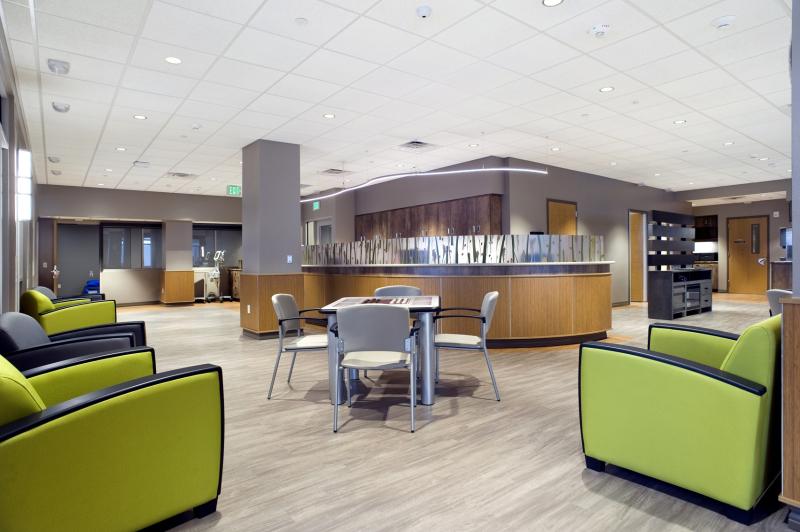Finding the missing link: mental illness and addiction in Sioux Falls
A look at the inside of The Link Community Triage Center, where individuals can stay for up to eight weeks.
December 9, 2021
In the Sioux Falls metro area, 45,259 adults have a diagnosed mental illness and 21,615 have a substance use disorder, according to the 2018 Minnehaha County Community Triage Center Baseline Data Report.
The lack of mental health and addiction services, coupled with these high numbers, leaves many people in Sioux Falls without support in these areas. The Link, located in downtown Sioux Falls, is hoping to be a main source of support for those struggling with substance abuse and mental illness.
“[The mission of The Link is] to empower individuals to seek care and provide a link to services that will help them thrive,” said Madeline Miller, Nurse Manager at The Link.
Although the facility opened just six months ago, The Link has already been able to assist hundreds of individuals struggling with addiction and mental illness.
“We have completed more than 1800 triage visits, [including] 250 withdrawal management admissions and over 1000 sobering admissions,” said Miller. “Each day we complete 10-12 triages.”
In the case of a mental health crisis or a crime, an intoxicated individual can be placed in jail or the ER involuntarily for 48 hours. This is a temporary solution to a chronic issue and often does not solve the problem at hand. The Link has been able to provide a viable solution in these situations, allowing individuals to be placed in a program made specifically for those in similar circumstances.
“We have seen a significant reduction in jail bookings related to involuntary holds for individuals who are intoxicated and we have seen a reduction in the number of ER visits related to acute intoxication at both Sanford and Avera,” said Miller.
The Link has been in the works for many years, taking almost a decade to organize the center in collaboration with Sanford, Avera, Minnehaha County and its Sheriff’s Department and the City of Sioux Falls. The collaboration between all of these community organizations is what makes The Link so accessible and impactful.
“All four partners contribute equal funding annually to ensure that the people of our community have access to these much-needed services,” said Miller.
While it is still a relatively small organization, The Link offers three different programs, including medically monitored withdrawal management, observation for intoxicated individuals and mental health crisis stabilization. All services provided by The Link are provided at a free or reduced rate, eliminating the financial barriers that prevent many from receiving this care.
“If an individual has insurance, it will be billed for the services provided. If individuals do not have insurance, they will not receive a bill for their stay,” said Miller.
With a team of nurses, paramedics, chemical dependency counselors, security officers and case managers, The Link is more than equipped to handle and assist individuals in crisis situations. But, the center is also open for smaller services such as referrals to other community resources and crisis evaluations.
“It has been amazing to see how big of an impact such a small facility can have. It is clear that we are changing lives every day as we continue to hear positive feedback from our patients, our stakeholders and our fellow community members,” said Miller.
In addition to preventing involuntary holds in the ER or in jail, The Link is providing services that patients would otherwise not have access to and that, in many cases, will alter the course of their lives.
“Everyone deserves to be treated with compassion, no matter their illness or situation in life, and everyone deserves a chance at recovery,” said Miller.









